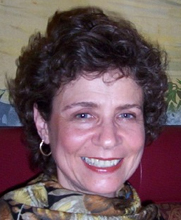 |
|||||||||||||||||||||||||||||||||||
|
|||||||||||||||||||||||||||||||||||
|
|||||||||||||||||||||||||||||||||||
|
Questions & Answers - October 2002
Dear Mary, My father has an aggressive, incurable cancer. He has never been very communicative about his feelings, what is going on in his head, etc. Occasionally he shares stories about growing up. I would love to have something to give to my kids so that they may know their grandfather better when he is gone. I was thinking of trying to come up with some questions that I could ask him that might reveal more about who he is, what is important to him, some childhood stories, etc. I am looking for some help in coming up with these questions. Can you help me? Thank you. I am so sorry to hear about your father’s illness. Yes, there are ways to get him to communicate more. Prompt him with open-ended questions that avoid yes or no responses. Reminisce with him about your childhood experiences and encourage him to tell you of his. The time spent reminiscing will be special for both of you. If your children are old enough, have them join you. Your father may be more open to story telling with them present and prompting him with questions. Your children will also gain wonderful memories of their grandfather. You can use the direct approach, too. Explain to him that you are putting together a family history journal and need his help. God Bless. * * * Dear Mary, Can you provide to me and my family advice or guidance about the decision process and ways to approach a potential patient of Alzheimer's? Our issue is that symptoms are very apparent like short-term-memory lapses. She can't remember who attended an event with her that happened yesterday, asks the same question three or more times in the space of 5 minutes, is generally anxious and can't sit still. She also has occasional loss of "the right word" to describe something. Though she has only 3 of the 10 symptoms listed on the Alzheimer’s Association site, could this be the early stage? A thorough medical and psychological evaluation is needed to determine if this person is suffering from Alzheimer’s disease. Although her symptoms appear consistent with it, there could be other causes for her behavior.
Email Mary: info@gero-resources.com It is illegal to reprint articles, in any format (including emails, websites, etc.), without explicit written permission from the author of this article and / or Empowering Caregivers™ |
|||||||||||||||||||||||||||||||||||
|
|
|||||||||||||||||||||||||||||||||||
|
|||||||||||||||||||||||||||||||||||
|
EMPOWERING CAREGIVERS™ is trademarked. All Information on this website is owned by Gail R. Mitchell. This includes but is not limited to the journal exercises, Newsletters and original articles, etc. Permission must be obtained from Gail R. Mitchell for any external use of this material.
© Copyright Gail.R. Mitchell. All rights reserved. |
|||||||||||||||||||||||||||||||||||
